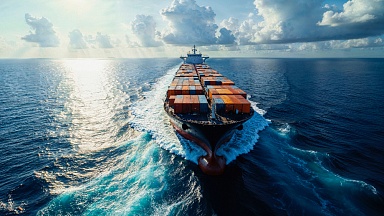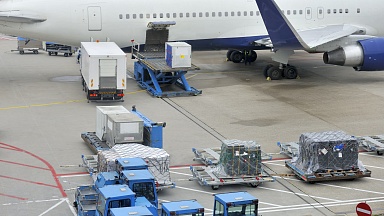«The world needs China», commented Olaf Scholz, the German Chancellor, when he visited Beijing and his Chinese counterpart in early November 2022. In supposedly a celebration of German-Chinese relations preceded by a turbulent acquisition of Hamburg’s Container Terminal Tollerort by COSCO, Scholz seemed willing to institute a new era of economic and trade ties between the two countries.
The aggravating economic and business environment resulting from consecutive blows by Covid-19 and the war in Ukraine made rekindling relations between Germany and China look imperative to keep the global economy going and provide a safety net for sectors affected by the crises of the past years.
However, what appeared as a renewed relationship deteriorated even more in 2023. In early January, some governmental documents that emerged as the blueprint of Germany’s renewed China policy leaked into German media. Their main message was that Germany aims to draw stricter lines regarding its dependency on China and diversify its economic ties with other countries.
Conflicting opinions
Some received the documents with scepticism, while others were very much inclined towards the new approach, even more than the German government. That being said, some German MPs like Roderich Kiesewetter noted that Germany’s objective is «to diversify the country’s energy supply and release from the cheap supply chains from China».
Others, like the Chinese ambassador to Berlin, said such a mentality could put cooperation between the two countries at risk. In a more sober approach, the Asia-Pacific Committee of German Businesses also backed reducing one-sided dependencies but insisted on seizing economic opportunities.
However, many insisted that Germany’s new strategy, which could become an official state policy any day, could signal a new bipolar world emerging. In this bipolar world resembling Cold War times, Germany and possibly Europe would gradually distance themselves from the Chinese economy and supply chain.
Gradual diversification as a global trend
Recent events like the war in Ukraine and the domino effect it brought to global trade and supply chains prove that strategies like Germany’s are becoming all the more relevant regarding connectivity via rail or even sea. A Germany distanced from China could blow another strike to the fragile Eurasian transport. Yet, according to experts and the port of Hamburg, things might be way more straightforward, less dramatic and quite realistic in the end.
«I have the impression that the German government wants to diversify its economic relations to reduce dependence on China, but it aims to do so gradually to limit potential damage to the German economy», points out Frans-Paul van der Putten, an expert and consultant on China and geopolitics. However, according to him, international supply chains and economies will likely regionalise and become more diversified globally, following a general trend.
He continues by saying that China is an important export market and production base for German companies. «The rail corridor to China has a valuable role in the German economy but does not contribute significantly to Germany’s dependencies on China. So from that perspective, there seems no need for the German government to limit Germany’s role in the Silk Road», he adds.
However, he warns that if German companies reduce their interaction with China, the Eurasian rail corridor will become less relevant for Germany.
It’s about avoiding old mistakes
Regarding Scholz’s quote that «the world needs China», Mohamad Forough, a researcher at the German Institute for Global and Area Studies (GIGA), says that its meaning refers to Germany and the EU being unable to survive economically without China.
Yet, Germany and the EU should be aware of not repeating the Russian overdependency mistake with China. «It’s a very realistic policy, between the rosy picture China paints and the post-apocalyptic and fatalistic discourse of the US. Germany/EU’s position is that there’s stuff to be won and stuff to be potentially lost when it comes to China», he says.
He explains that Germany cannot cut itself off from Chinese supply chains that easily. «Certainly not in the short term and not in the absence of another cheap supplier». He also underlines that the public should remember that some political statements have a purely diplomatic character that does not respond to the actual policy implementation.
As for the global economic and trade trends, Forough firmly believes that in terms of logistics, there will be increased connectivity, and new emerging hub countries like Turkey, Iran, or UAE will gradually be more influential.
Like van der Putten, Forough identifies a global diversification trend that Germany and Europe should follow. «I think the EU is rightly reducing dependencies on Russia and trying to do that with China’, he adds.
Port of Hamburg is not worried
«In general, greater diversification of economic and trade relations is essential, also to mitigate cluster risks and avoid long-term one-sided dependencies. Irrespective of recent political and policy decisions, the manufacturing industry has anticipated this trend and is either already relocating selected production sites or investigating relocation options. Trade and trade links then tend to follow», says a spokesperson from Port of Hamburg Marketing.
«As a result, a political strategy — and at this stage, it is more a strategy than policy — that excludes sanctions is not a ‘threat’ to Sino-German trade relations. We also do not expect Germany’s new foreign policy towards China to negatively impact rail freight links between the two countries», the spokesperson continues.
The port of Hamburg confirmed van der Putten’s claims that the Eurasian rail corridor is important for the German economy but not as important to damage it. «Their importance (Silk Road trains) has diminished somewhat due to the war in Ukraine and falling sea freight prices in the last year, but the rail links are still an important complement to trans-Eurasian trade flows», highlights the Port of Hamburg Marketing spokesperson.
In any case, Germany remains one of China’s largest trade partners, says Forough, and the port of Hamburg agrees. «A diversification strategy should not just focus on withdrawing from the Chinese market. It is crucial to take advantage of the opportunities in the Chinese market while developing and expanding at the same time», concludes the spokesperson.




